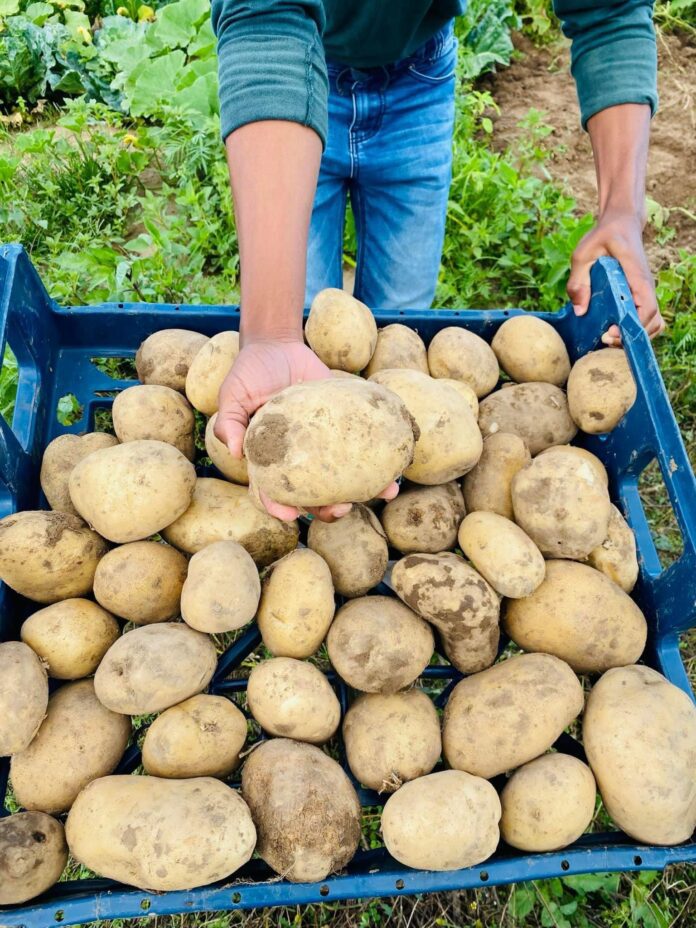The Kenya Agricultural and Livestock Research Organisation (KALRO) has introduced a groundbreaking potato variety, Clone IG-70, set to transform potato farming across the country. Launched during the Mkulima Open Week at KALRO’s Potato Research Centre in Tigoni, Limuru Sub-County, the new variety promises resilience, high yields, and improved processing quality.
Clone IG-70 stands out for its exceptional drought and blight tolerance—two of the most pressing challenges faced by potato farmers in Kenya. According to KALRO researchers, this new breed can yield up to 320 bags per acre, significantly outperforming traditional varieties.
“Certified seeds play a crucial role in enhancing potato productivity,” stated Robert Musyoki, Director of KALRO Seeds. “Our aim through the Open Week is not only to unveil innovations like Clone IG-70, but also to empower farmers with knowledge about modern technologies and best practices.”
Musyoki noted that Clone IG-70 is in the final stages of verification and will soon be available to farmers. He urged stakeholders to support efforts to scale up certified seed production, a move he believes is critical to meeting Kenya’s growing food demand.
Despite rising demand for certified seeds, Musyoki acknowledged current production constraints. “We are calling on partners and investors to collaborate with us to increase our seed output,” he said.
Moses Nyongesa, Director of KALRO’s Horticulture Research Centre in Tigoni, emphasized the importance of Clone IG-70 in addressing long-standing farmer concerns. “Farmers have been asking for a potato variety that resists blight and delivers consistent, high yields. Clone IG-70 ticks all the boxes, and its excellent processing qualities make it ideal for chips and roasting,” he said.
To address the persistent seed shortage, KALRO has also introduced the rooted apical cuttings technology, which allows farmers to access early-generation potato seedlings. This method not only accelerates seed multiplication but is also adaptable to other crops such as tomatoes, potentially boosting overall agricultural productivity.
Faida Kelele John, a research scientist at KALRO, underscored the risks of relying on uncertified seeds, noting that nearly 80% of Kenyan farmers still use them. “Certified seeds undergo strict evaluation and meet quality standards that ensure better disease resistance and yield. Clone IG-70 is a game-changer with its large tubers and adaptability to Kenyan conditions,” she explained.
Farmers in attendance expressed optimism about the new variety but voiced concerns over the affordability and accessibility of certified seeds. Peter Magina, a potato farmer from Limuru, praised KALRO’s innovations but called on the government to ramp up funding for seed production.
“Access to advanced seed technology has greatly improved my yields, but high costs remain a barrier for many small-scale farmers. We need more government support to ensure these technologies reach every corner of the country,” Magina said.
As Kenya grapples with food security challenges and climate variability, KALRO’s Clone IG-70 may prove to be a pivotal solution in securing the future of potato farming—one certified seed at a time.





![SHA Suspends Dozens of Health Facilities Over Alleged Fraud [LIST]](https://citymirror.ke/wp-content/uploads/2024/12/image-14-218x150.png)

